This article about how to get a literary agent for fiction is for both new and established novelists. It includes tips regarding submission materials and methods, word count, how to categorize your book using the correct fiction genre(s), and author profile or platform expectations. It’s part of our free 15-Part Guide About How to Get a Publishing Agent.


HOW TO Get a BOOK Agent for a Novel
How to get a literary agent for fiction:
- Categorize your book properly using the correct book genre(s).
- Make sure your book fits within the correct fiction publishing agent word count requirements.
- Follow fiction book agent submission requirements.
- Understand fiction publishing agent profile and platform requirements for authors.
Categorize Your Novel With the Correct Fiction Genre – How to get a literary agent for fiction
Increase your odds of getting a fiction book agent by classifying or categorizing your book correctly. Sometimes it’s simple; it’s usually complicated. If you miscategorize your novel, it will lead to literary agent rejections. And, if you classify your novel correctly it will–in some cases–allow you to query a greater number of agents.
What do you need to know about how to get a literary agent for fiction? There are well over one hundred fiction genres and sub-genres, so it’s easy to get confused. Author representatives often add to the confusion, unwittingly, by offering slightly different or dramatically different interpretations of various fiction genre definitions. For example, some book agents believe a novel is only Historical Fiction if the book takes place more than 50 years ago, and if one of the main characters is a well-known historical figure.
Other book agents say a novel is Historical Fiction if it takes place more than 50 years ago, and one of the main characters is not a well-known historical figure. And, some book agents call books that take place more than 50 years ago where one of the main characters is not a well-known historical figure something different entirely. Depending on the particular literary agent and the sophistication of the writing, the novel might also be categorized differently. For example, as General Fiction, Mainstream Fiction, Upmarket Fiction, or Literary Fiction. If the protagonist is female, the book might be classified as Women’s Fiction. Etc.
Better understanding the many book genres and how publishing agents use them will allow you to categorize your novel appropriately. It will also allow you to sometimes use different genres to describe your book in slightly different ways, for different literary agents. As a result, you might be able to query a greater number of literary agents.
You can research fiction categories using our Book Genres Website.
Fiction Word Count Requirements – How to get a literary agent for fiction
Fiction authors who make sure their novels are within the expected or required word count range have a better chance of getting a literary agent. There are different word count expectations and requirements for the various fiction book genres and for various book agents. There are also different word count expectations and requirements for new vs established authors.
Most adult fiction publishing agents prefer all debut novels by authors who aren’t already extremely successful be 80-95,000 words. There is some flexibility in that most author representatives will still consider novels that are 75-100,000 words. But once you start getting outside that range, you are dramatically decreasing your odds of getting a book agent.
The only exception is Historical Fiction, Science Fiction, and Fantasy. Literary agents who represent those fiction genres sometimes accept novels up to 120,000 words. That’s because those genres are expected to have more world-building.
Fiction Submission Material Requirements – How to get a literary agent for fiction
Unless you’re already a bestselling or award-winning novelist–or a celebrity–you can’t submit your book to literary agents until your novel is complete. To pitch your novel, you’ll need a query letter, fiction book synopsis, and, in some cases, a fiction book proposal.
What do you need to know about how to get a literary agent for fiction that’s unique to novelists? Unlike nonfiction authors who can query book agents with only sample manuscript pages or chapters, fiction authors need to be done writing the entire novel. It is too easy for fiction authors to start a book well and not be able finish it. Other times, the first part of a novel can be publishable, but the middle and/or ending are not as strong.
Novelists writing any and all fiction genres and fiction subgenres must also provide publishing agents with a synopsis. Literary agents vary regarding how long they want a book synopsis to be, and how they want it formatted. However, most book agents prefer a book synopsis be 1-2 pages, and most prefer a book synopsis be double-spaced.
A small number of publishing agents require fiction authors to submit a longer synopsis. A very small number of literary agents require novelists to submit a chapter-by-chapter synopsis. And a very small number of publishing agents require novelists to submit a fiction book proposal.
Writing a long synopsis, chapter-by-chapter synopsis, or fiction book proposal is a lot of work. As a result, most fiction authors don’t create them unless a literary agency has expressed interest and requested that additional material. Or, if the author is desperate and the only remaining publishing agents who haven’t yet been queried are requesting that additional material, as part of their standard or basic submission requirements.
Novelist Platform Requirements – How to get a literary agent for fiction
Novelists seeking literary agents often get discouraged when they see fiction author representatives talking about the need for a strong “author profile” or “author platform.” They shouldn’t be. There are minimal fiction author profile or platform expectations or requirements.
What do authors need to know about how to get a literary agent for fiction when it comes to platform? Most book agents oversimplify the meaning of author profile or platform by saying it means the number of people in your contact database, the number of people who visit your website each year (if you have a website), and the number of followers you have on social media (if you’re active on social media).
Thinking more broadly, your author profile or platform is how well-known you are, generally, or in a way related to your book. And it is how many prospective fiction book buyers you have the ability to make aware of your book when it’s published.
Novelists should plan to market their fiction once they get a publisher–but they don’t need a profile or platform prior to publication. They should simply consider future promotion options: email list, website, social media, blogging, articles, speaking, media interviews, advertising, search engine optimization, getting blurbs from other fiction authors and influencers, and other creative promotional partnerships.
Fiction authors don’t need to promise to do all those things if and when their books are published–but it’s wise to promise to do some of them.
Remember, for the most part, novelists don’t need an author profile or platform prior to publication. It is a misunderstanding caused by the fact that many book agents who represent fiction authors also represent nonfiction authors–and nonfiction authors have greater expectations and requirements for their profile or platform.
Only a very small number of fiction author representatives require a significant author profile or platform.
Facts About Fiction Literary Agents 2022
- There are 936 fiction book agents in the U.S.
- 663 fiction literary agents are female
- 271 fiction book agents are male
- 2 fiction publishing agents are nonbinary
- 722 fiction literary agents accept email submissions
- 236 fiction book agents use online website forms
- 114 fiction publishing agents accept postal mail submissions
- 243 fiction author representatives are members of the AALA/AAR
- 649 fiction literary agents are on LinkedIn
- 635 fiction book agents are on Twitter
- 177 fiction publishing agents use FB
List of Top Fiction Literary Agents 2022
The best fiction book agents, listed here, are the most successful based on the amount of significant fiction book deals they’ve reported in the last year, according to PublishersMarketplace.com.
List of Top 10 Fiction Book Agents
- Robert Gottlieb (Trident Media Group)
- Kimberly Whalen (The Whalen Agency)
- Marly Rusoff (Marly Rusoff & Associates)
- Jenny Bent (The Bent Agency)
- Russell Galen (Scovil Galen Ghosh Agency)
- Steven Axelrod (The Axelrod Agency)
- Kevan Lyon (Marsal Lyon Agency)
- Scott Miller (Trident Media Group)
- Deidre Knight (The Knight Agency)
- Victoria Sanders (Victoria Sanders & Associates)
List of Fiction Literary Agents Seeking New Writers 2022
Find all fiction book agents seeking new writers representing all fiction genres here. Increase your chances of getting a literary agent by making sure you only query fiction publishing agents looking for new clients, who don’t require referrals.
20 Fiction Book Agents Seeking New Writers
- Alexander Field (The Bindery)
- Kathleen Anderson (Anderson Literary Management)
- Barbara Braun (Barbara Braun Associates)
- Faith Hampton Childs (Faith Childs Literary Agency)
- Pamela Hopkins (Hopkins Literary Associates)
- Pattie Steele-Perkins (Steele-Perkins Literary Agency)
- Mitch Hoffman (The Aaron M. Priest Literary Agency)
- Laura Nolan (Aevitas Creative Management)
- Betsy Amster (Betsy Amster Literary Enterprises)
- Laura Rennert (Andrea Brown Literary Agency)
- Nicole Aragi (Aragi Agency)
- Steven Axelrod (The Axelrod Agency)
- BJ Robbins (BJ Robbins Literary Agency)
- Jessica Faust (BookEnds Literary Agency)
- Mitchell Waters (Brandt & Hochman Literary Agents)
- Danielle Egan-Miller (Browne & Miller Literary Associates)
- Cynthia Cannell (The Cynthia Cannell Literary Agency)
- Cecile Barendsma (Cecile B Literary Agency)
- Terra Chalberg (Chalberg & Sussman Literary Agency)
- Farley Chase (Chase Literary Agency)
Fiction Literary Agents Representing All Novel Genres 2022
You can create a personalized list of fiction literary agents using the literary agent database in the Directory of Literary Agents™. It’s free to use, and you’ll find book agents in the directory representing all novel genres, including the 38 most common fiction genres listed here.
- Action/Adventure
- Chick Lit
- Christian Fiction
- Commercial
- Contemporary
- Crime/Detective/Police
- Dystopian
- Erotica
- Espionage/Military
- Ethnic Fiction
- Family Saga
- Fantasy
- Gay/Lesbian Fiction
- General Fiction
- Glitz
- Graphic Novel
- Historical
- Horror
- Humor Fiction
- Inspirational Fiction
- Literary
- Magical Realism
- Mainstream
- Multicultural Fiction
- Mystery
- New Adult
- Paranormal
- Religious
- Romance
- Satire
- Science Fiction
- Short Story Collection
- Sports Fiction
- Suspense
- Thriller
- Upmarket Fiction
- Western
- Women’s Fiction
This article about how to get a literary agent for fiction was written by former book agent turned author coach Mark Malatesta, creator of The Directory of Literary Agents, host of Ask a Publishing Agent, and founder of Literary Agent Undercover and The Bestselling Author.
Mark has helped hundreds of authors get offers from literary agents and/or traditional publishers. Writers of all Book Genres have used our Literary Agent Advice coaching/consulting to get Top Literary Agents at the Best Literary Agencies on our List of Book Agents.
How to Get a Literary Agent for Fiction – Next Steps
Now that you’ve read this guide about how to get a literary agent for fiction, click here to:
- See the next part of this guide about getting an Offer of Representation from a Book Agent.
- Visit our Ask a Book Agent page, where you’ll find more resources about how to get a literary agent for fiction, including a complete list of questions and answers about getting a publishing agent.




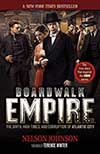

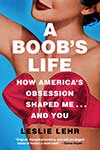

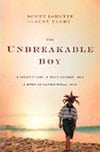

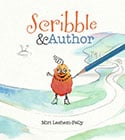
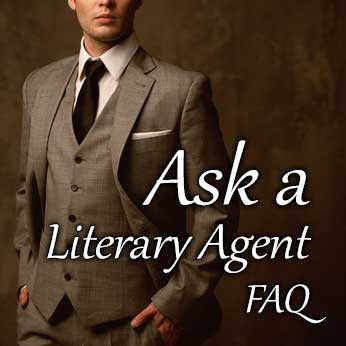
 MARK MALATESTA is a former literary agent turned author coach. Mark now helps authors of all genres (fiction, nonfiction, and children's books) get top literary agents, publishers, and book deals through his company
MARK MALATESTA is a former literary agent turned author coach. Mark now helps authors of all genres (fiction, nonfiction, and children's books) get top literary agents, publishers, and book deals through his company